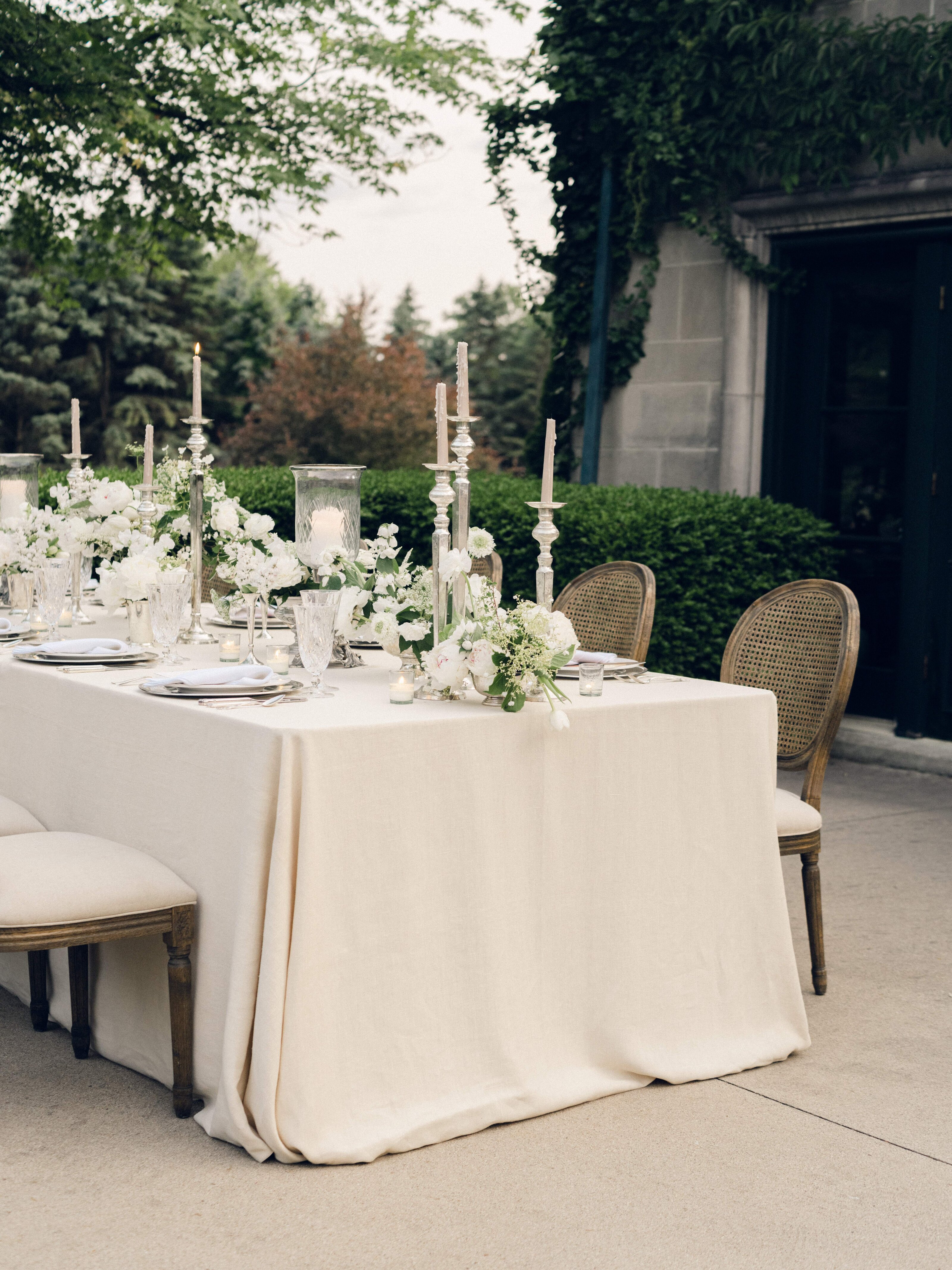
If you’ve ever watched a sporting event, almost every sport has clearly outlined fields and rules of play. When it comes to the game of life, we’re each participating in ways that make sense to us. We’ve built up understanding and formed beliefs around how the world works through lenses that are influenced by our culture, spirituality, religion, life experiences, and on and on. It can be especially difficult to navigate interpersonal relationships (family, work environments, friendships) around our own rules of play until we actually give ourselves permission to acknowledge them. We call our personal rules of engaging with life and the world: Boundaries.
You can think of personal boundaries as limits or the expectations we have of other people in how we treat them and how we’d like to be treated by them. We each have ideas around what types of behaviors are acceptable or unacceptable toward us. I’ve found that a lot of women have trouble advocating for their boundaries because they’ve never really examined what those parameters are or feel uncomfortable addressing them with people they care about. Where it can get especially sticky is when we discover that we haven’t advocated our true boundaries or that we’ve grown to understand that things aren’t working for us after a relationship has been established already (family, our partner, children). Many times we’ll choose to suffer silently so that we feel we are keeping the peace in our relationships.
There are many reasons for why this runs rampant for women, but that’s a discussion for a different day, today I want us to really examine why boundaries are important, how we discover what our boundaries are, and how we can communicate what we need from the relationships in our lives.
I once heard a quote that has stayed with me: “In every interaction you have with someone, you’re telling them how to treat you.” I think this is SO true. So when we don’t acknowledge our boundaries to ourselves because we never stopped to consider what they are, we don’t speak up when we feel like we’re being mistreated, or we don’t acknowledge when things aren’t working for us, we are telling other people in our lives that things are good the way they are.
Our boundaries are really a reflection of the relationship that we have with ourself. If you’re regularly feeling unheard or mistreated by people in your life, the first place you’re going to need to start is to understand that your needs and your feelings are important. That may seem self-evident, but if you’re constantly shrinking or minimizing your discomfort around another person, you’re allowing that behavior to persist, and ultimately placing a higher value on the other person and their feelings more than your own.
So how do you start prioritizing your own feelings? It’s important to really think about what you value and how you want to feel in your own life. Again, that may sound simplistic, but if I asked you what you value in your life (not who you value or the belongings that you value), but the actual values of your life (certainty, discipline, trust, security, freedom etc.) could you tell me what they are? Most people can’t articulate their values because they’ve never stopped to actually consider what they are. There’s a great website (and quiz) that will really help you lean into figuring these out – check it out here.
Once you’ve owned for yourself what you value and how you want to feel in your life, start tuning into the interactions you’re having. How are you feeling after you leave or interact with someone else? I can’t tell you how common it is to start noticing that longstanding relationships in your life might actually be violating some of your own personal values. For example, let’s say that your significant other regularly shows you a lot of physical affection in public, but that makes your really uncomfortable. You’ve never addressed it because you didn’t want to upset them or hurt their feelings. What we’re saying when we don’t communicate our boundaries and how we feel when they’re being violated is, “This is okay. Your behavior works for me.” We can fear upsetting the person and stuff our discomfort down (which will lead to resentment over time) because we want to keep the other person happy. The truth is that the people who love and care about you in your life, want for you to be happy and thriving. Wouldn’t you want to know that your behavior was making your partner feel uncomfortable? Of course you would! Because you love them and you want complete freedom and understanding for them.
If some of you are thinking, “I wish it was my partner I was having the issue with! I have no problem expressing how I’m feeling to them . . . how about my parents? How about my in-laws? How about my boss?” It may not feel as easy to discuss a boundary with family members (especially parental figures), people who we desire to like and approve of us, or people in positions of power. This is because we’ve been taught to respect people in power for our survival, and when we desire the approval of someone else we often do give them an internal power over our behavior. As children you had to learn how to negotiate pleasing your parents, making new friends, and the same is true in the workplace. We grow up understanding that our actions and behaviors can bring punishment and/or leave us without a community or even a job if we don’t do something or we step out of line.
One of the four primary fears we have as humans is rejection. We have a long history of survival through community so it can feel like a small death to have a conversation that we feel might make someone else upset because they might not take it well or they might ultimately reject us. What I think is important to start understanding is that if the approval you’re seeking means that you’re unable to thrive in your life and identity completely, what’s the point? You’re living a cramped, false life so that other people around your will feel more comfortable, you’re not a couch. You’re an incredible human being with extraordinary potential, let’s really empower you to thrive and advocate for what you need. That all starts by claiming to ourselves what that is and then beginning to have conversations with others who might be stepping on your toes.
So, how do we have these conversations?
- Honesty.
I’ve found that being honest is really the best way forward. It’s okay to admit to the other person that you’ve not wanted to say anything, or that you weren’t aware until now of how it was affecting you, but ultimately you need something different. - Set the scene.
It’s important to explain where you’re coming from and the lens that you’re working from. Let’s say you’re a virtual business owner and you dread going home for extended periods to see your family or spending time with your in-laws because when you visit they feel like you’re on vacation, when the truth is that you still have a company to run. In this situation, it’s best to articulate your intentions for when you’ll be spending your time with them and that you’ll need to safe guard specific time for your business as you’re the one running things. Again, you may wish that your family or in-laws just understood that because it seems like common sense to you, but think about their own reality and how their life experience may not be anywhere near what you’re walking through. Sometimes we have to educate people about how our lives work and function because they don’t have a clue in the slightest or their life experience is different. - Be willing to remove yourself from the conversation.
If the person you’re expressing your needs to is responding in a way that makes you uncomfortable, it’s okay to take a breather and remove yourself from the situation. Again, you’re advocating for yourself in setting these boundaries and this is another form of standing up for yourself. You can think about how you might respond in the situation if you saw someone treating a child or speaking to a child in the situation, if you would want to protect that kiddo or remove them, it’s also an indicator that you should extend that same love and protection to yourself. - Be willing to leave the relationship.
Once you’ve stated your boundary if it’s regularly becoming an issue that it’s being violated, it’s okay to walk away from a relationship that isn’t honoring who you are or what you want out of life. You don’t owe the other party an explanation or need to stay – you are here on this earth to do vital work and be completely who you are, if there’s something or someone standing in the way of that, it’s time to let them go.
Your time on this planet is YOURS. How do you want your life to feel? How do you want the people in your life to treat you? Remember that each and every interaction with someone is how you’re telling or training someone else to treat you, and you are a queen! It’s time to put the world on notice.
Cheers to your expansion and the beauty of exactly who you are and what you want,

Evelyn is a Mindset and Life Coach.
+ view the comments







